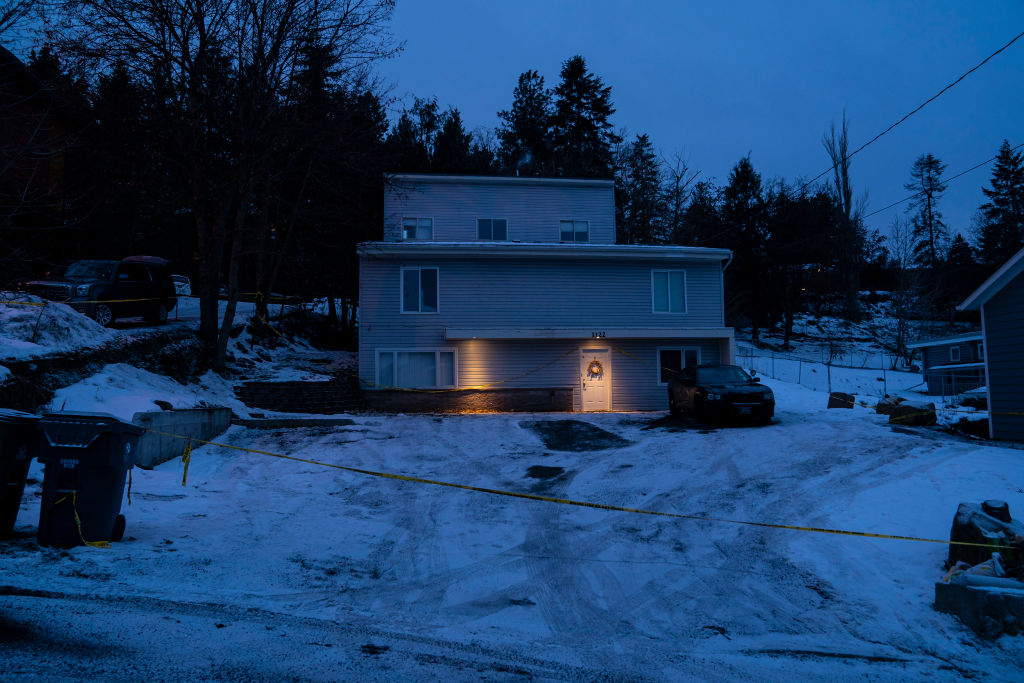A probable cause affidavit outlining charges against Bryan Kohberger reveals disturbing new details about the Idaho quadruple homicide he’s accused of.
The document has been unsealed Thursday following Kohberger’s extradition from Pennsylvania.
An unnamed witness describes seeing a mask-clad man dressed in black inside the house where four University of Idaho students were murdered on Nov. 13.
The survivor of the attack hasn’t spoken publicly about seeing the murderer before. Her account of the early morning of the killings is featured in the affidavit of charges against Kohberger.
The witness identified as “D.M.” had opened her bedroom door after hearing a disturbance and voices early on the morning of Nov. 13.
The resident “saw a figure clad in black clothing and a mask that covered the person’s mouth and nose walking towards her.”
The survivor stood in a “frozen shock phase” as the suspect walked past her towards a sliding glass door, later locking herself inside her bedroom.
“D.M.” didn’t indicate that she recognized the masked intruder that morning.
Law enforcement believes they’ve arrested the individual responsible for the killings. Kohberger was apprehended in Pennsylvania after driving cross-country for the holidays.
Kohberger maintains his innocence in face of the charges. The criminology Ph.D. student believes he’ll be exonerated, according to KCPQ-TV.
There’s reason to believe that these charges won’t be resolved quickly. In fact, the trial of Kohberger might not happen for years.
Idaho is a death penalty state, and it’s a strong possibility that prosecutors seek the ultimate punishment for one of the worst crimes in the state’s history.
It’s common for death penalty trials to take more time than cases where execution isn’t on the table.
It’s worth noting that the charges against Kohberger don’t amount to an air-tight, open-and-shut case, as well.
As one might expect in a case where authorities took two months to arrest a suspect after a home invasion quadruple slaying.
It’s more likely that the jury eventually empaneled for Kohberger’s trial takes a more thorough look at the evidence than media commentators who have decided themselves experts on the matter.
None of this means he’s innocent, although he’s entitled to that presumption under the Constitution.
The authorities say they’ve discovered the defendant’s DNA on a knife sheathe discovered at the crime scene.
Kohberger’s defense attorney would be wise to question her client on his history with the item in question.
If Kohberger doesn’t have a truthful alibi that can establish why his DNA would be inside the house or on the sheathe, it’ll prove challenging to convince a jury that law enforcement fixated on the wrong man in the murder investigation.
Kohberger was denied bail in his first Idaho court appearance on Thursday, according to KREM-TV.
This article appeared originally on The Western Journal.
























 Continue with Google
Continue with Google